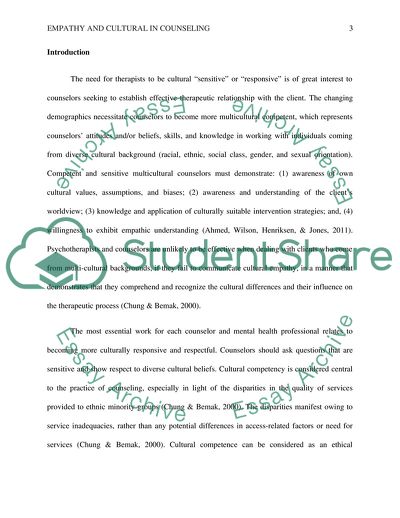Cite this document
(Empathy and Cultural in Counseling Coursework Example | Topics and Well Written Essays - 1250 words, n.d.)
Empathy and Cultural in Counseling Coursework Example | Topics and Well Written Essays - 1250 words. https://studentshare.org/psychology/1819430-empathy-and-cultural-in-counseling
Empathy and Cultural in Counseling Coursework Example | Topics and Well Written Essays - 1250 words. https://studentshare.org/psychology/1819430-empathy-and-cultural-in-counseling
(Empathy and Cultural in Counseling Coursework Example | Topics and Well Written Essays - 1250 Words)
Empathy and Cultural in Counseling Coursework Example | Topics and Well Written Essays - 1250 Words. https://studentshare.org/psychology/1819430-empathy-and-cultural-in-counseling.
Empathy and Cultural in Counseling Coursework Example | Topics and Well Written Essays - 1250 Words. https://studentshare.org/psychology/1819430-empathy-and-cultural-in-counseling.
“Empathy and Cultural in Counseling Coursework Example | Topics and Well Written Essays - 1250 Words”. https://studentshare.org/psychology/1819430-empathy-and-cultural-in-counseling.


